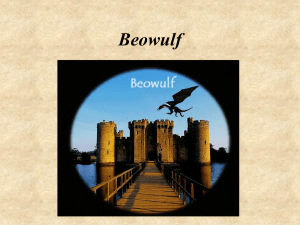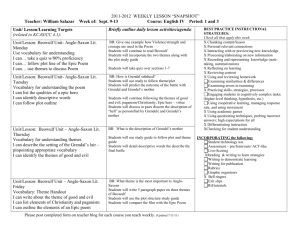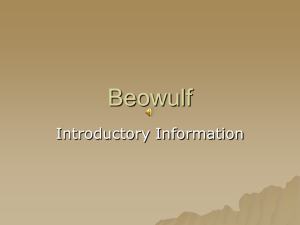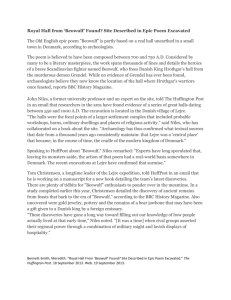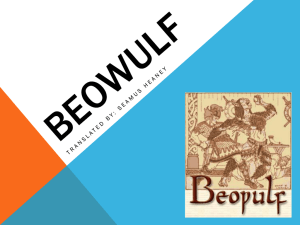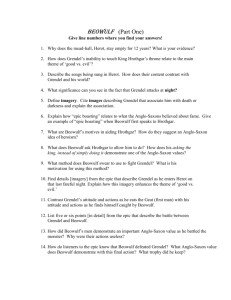Beowulf, A Historical Background
advertisement
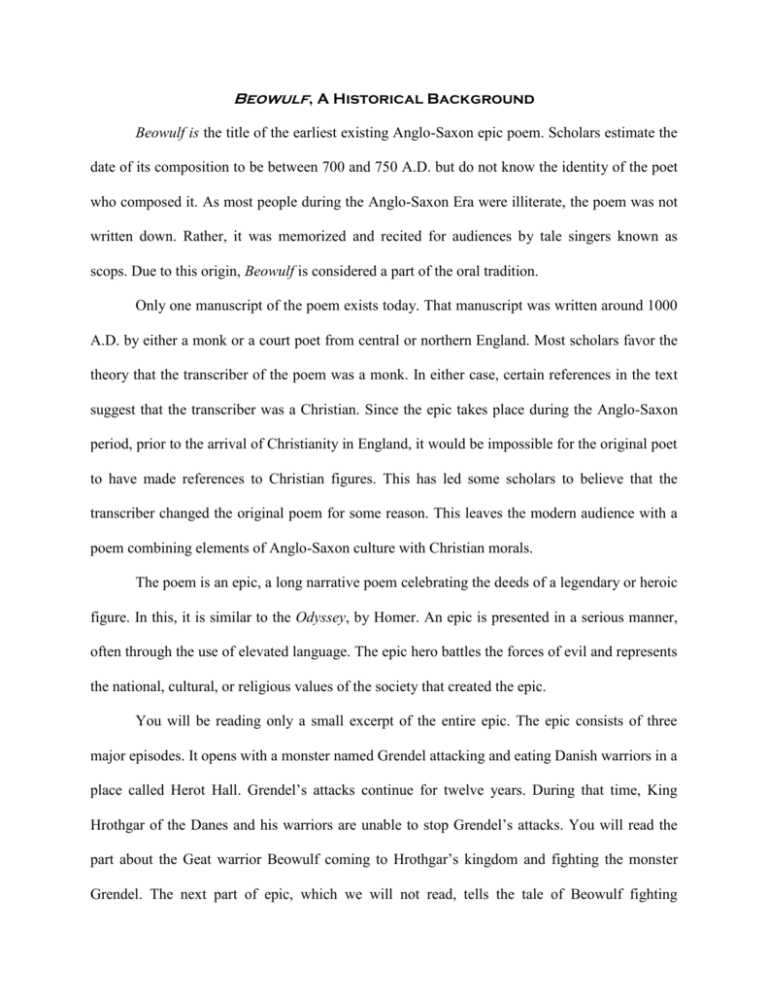
Beowulf, A Historical Background Beowulf is the title of the earliest existing Anglo-Saxon epic poem. Scholars estimate the date of its composition to be between 700 and 750 A.D. but do not know the identity of the poet who composed it. As most people during the Anglo-Saxon Era were illiterate, the poem was not written down. Rather, it was memorized and recited for audiences by tale singers known as scops. Due to this origin, Beowulf is considered a part of the oral tradition. Only one manuscript of the poem exists today. That manuscript was written around 1000 A.D. by either a monk or a court poet from central or northern England. Most scholars favor the theory that the transcriber of the poem was a monk. In either case, certain references in the text suggest that the transcriber was a Christian. Since the epic takes place during the Anglo-Saxon period, prior to the arrival of Christianity in England, it would be impossible for the original poet to have made references to Christian figures. This has led some scholars to believe that the transcriber changed the original poem for some reason. This leaves the modern audience with a poem combining elements of Anglo-Saxon culture with Christian morals. The poem is an epic, a long narrative poem celebrating the deeds of a legendary or heroic figure. In this, it is similar to the Odyssey, by Homer. An epic is presented in a serious manner, often through the use of elevated language. The epic hero battles the forces of evil and represents the national, cultural, or religious values of the society that created the epic. You will be reading only a small excerpt of the entire epic. The epic consists of three major episodes. It opens with a monster named Grendel attacking and eating Danish warriors in a place called Herot Hall. Grendel’s attacks continue for twelve years. During that time, King Hrothgar of the Danes and his warriors are unable to stop Grendel’s attacks. You will read the part about the Geat warrior Beowulf coming to Hrothgar’s kingdom and fighting the monster Grendel. The next part of epic, which we will not read, tells the tale of Beowulf fighting Grendel’s mother. The third part of the epic takes place fifty years after the battles with Grendel and Grendel’s mother. Beowulf has become the king of the Danes and fights a dragon who is menacing his kingdom.


